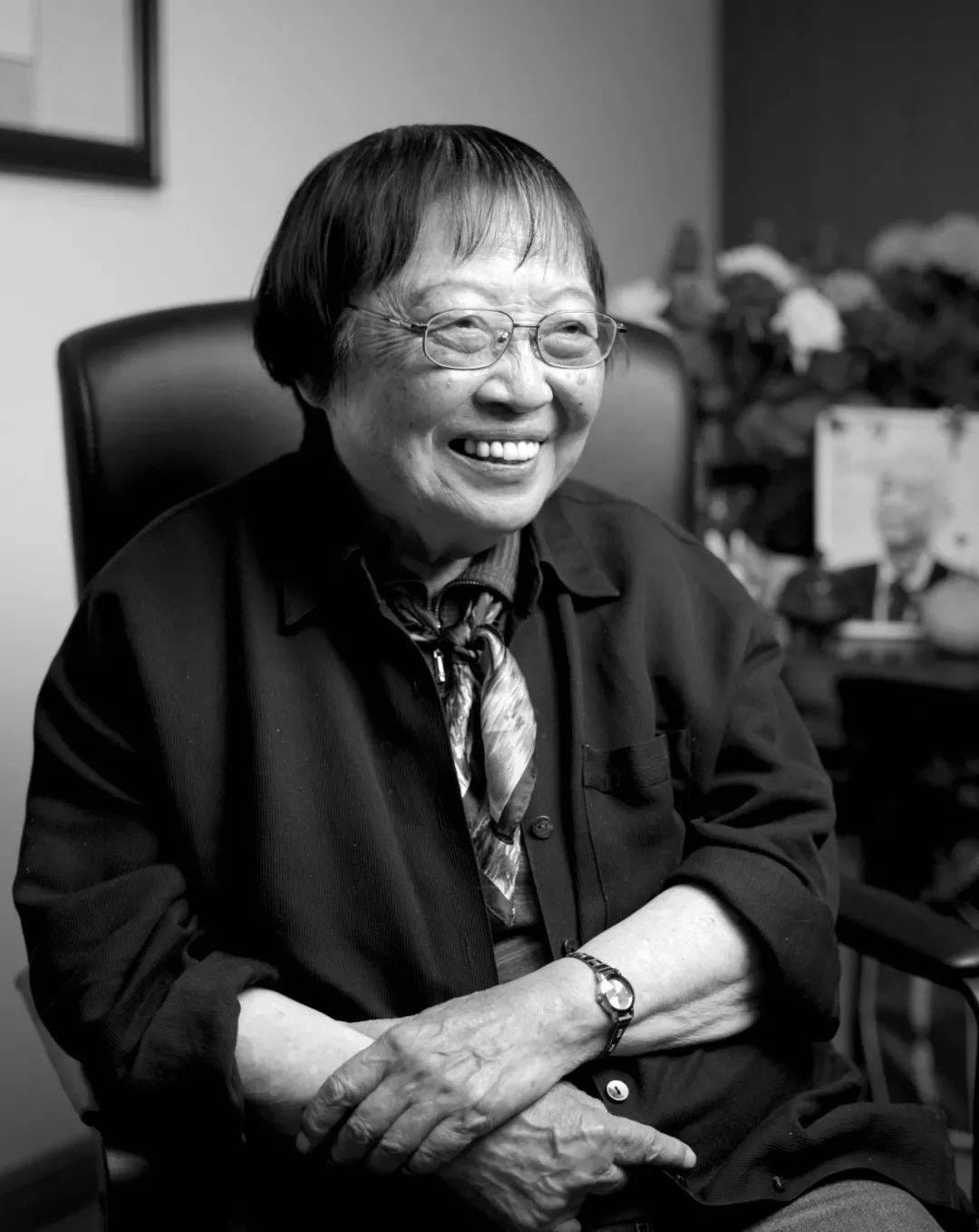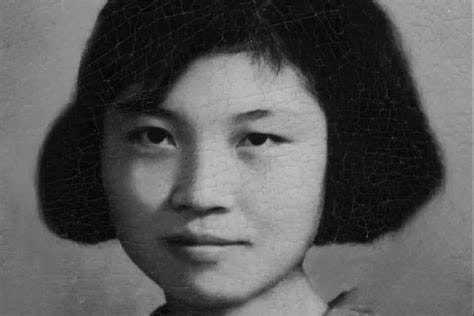In Memory of Yue Daiyun: The Passing of a National Treasure
A Life of Quiet Resilience and Ambitious Achievements
Yue Daiyun (1931-2024), a member of the Miao ethnic group, was born in January 1931 in Guiyang, Guizhou Province. She graduated from the Department of Chinese Language and Literature at Peking University in 1952. Throughout her distinguished career, she served as the Director of the Institute of Comparative Literature and Comparative Culture at Peking University, the President of the Chinese Comparative Literature Association (CCLA), and the Vice President of the International Comparative Literature Association (ICLA). Her major works include The Principles of Comparative Literature, Comparative Literature and Modern Chinese Literature, The Form and Spirit of Chinese Intellectuals, The Bridge of Cross-Cultural Communication, Intellectuals in Chinese Novels, and Comparative Literature and China: Yue Daiyun's Overseas Lectures (English edition) (《比较文学原理》《比较文学与中国现代文学》《中国知识分子的形与神》《跨文化之桥》《中国小说中的知识分子》《比较文学与中国 — 乐黛云海外讲演录》). On July 27, 2024, the academic world mourned the loss of one of its most eminent figures, Professor Yue Daiyun, who passed away at the age of ninety-three.
Renowned scholar and pioneer of Comparative Literature in China, Professor Yue Daiyun of Peking University’s Department of Chinese Language and Literature, passed away on July 27, 2024, at the age of ninety-three.
"Tragic news! Heartbreaking! My mentor and dear friend, Professor Yue Daiyun, passed away this morning due to illness. I visited her at Langrun Garden this past spring, and though she was in good spirits then, she mentioned feeling lonely. This time, she was hospitalized due to a stroke, but she did not suffer too much. Now, she has gone to the other side to reunite with Mr. Tang Yijie," expressed Wen Minru, a professor at Peking University’s Department of Chinese Language and Literature, with deep sorrow.
Yue Daiyun was born in January 1931 in Guiyang, Guizhou Province, and graduated from the Department of Chinese Language and Literature at Peking University in 1952. She held key positions, including Director of the Institute of Comparative Literature and Comparative Culture at Peking University, President of the Chinese Comparative Literature Association, and Vice President of the International Comparative Literature Association. Thanks to her efforts, Peking University established China's first research institute for comparative literature, the country founded its own Comparative Literature Association, and universities across China established numerous master’s, doctoral, and postdoctoral programs in comparative literature. Chinese scholars began to gain international recognition, taking on significant roles within the International Comparative Literature Association, and the discipline of comparative literature became a vibrant force in humanities research.
Yue Daiyun was often regarded as one of the most storied individuals at Peking University, earning her the title of "National Treasure." Her students included prominent figures like Qian Liqun and Dai Jinhua, and her harmonious relationship with her husband, the famous scholar Tang Yijie, was the stuff of legend. After graduating from Peking University and staying on to teach, Yue Daiyun encountered a series of hardships, taking on roles such as pig farmer, cook, mule driver, and bricklayer before eventually returning to her academic post. At the age of fifty, when most people are considering slowing down, she resolutely chose to start anew. She reinvigorated her academic pursuits, overcoming numerous challenges in the development and theoretical advancement of comparative literature, and achieved remarkable success.
Yue Daiyun once remarked, "Fate, Luck, Virtue, Knowledge, and Action—these five words have governed my entire life. 'Fate' is innate, 'Luck' is full of randomness, 'Knowledge' implies the pursuit of knowledge and wisdom, and 'Action' represents the choices and decisions made in the reality of life." Fate might have led her to become a secretary for a Beijing municipal leader, but she preferred academia. Serendipity could have made her a diplomat, but she chose to stay in academia. The key to life, she believed, is "choice." She was convinced that "Life should ignite into flames, not merely smolder."
"Professor Yue read the Soviet novel Morning on Sakhalin when she was young, and a line from it became her lifelong motto. She often quoted this maxim in her classes when I was a graduate student," recalled Wen Rumin. To him, the decision between "burning brightly" and "smoldering" reflects a choice in one’s outlook on life. Every "choice" Yue Daiyun made was to ensure her life "burned brightly" and shone with brilliance. Her memoir, Ninety Years of Vicissitudes: My Literary Journey (《九十年沧桑:我的文学之路》), published by the Encyclopedia of China Publishing House in 2021, is a collection of reflective essays. At the book’s launch event, she attended in a wheelchair, stating, "I very much look forward to hearing your criticisms. My principle in writing this book was not to speak foolishly or falsely. I aimed to speak the truth, even if imperfectly. If you find any falsehoods in the book, please point them out to me. This is a principle I hold in high regard."
In this book, reflecting on her childhood, Yue Daiyun wrote—
"My parents often likened themselves to the main characters in Six Records of a Floating Life (《浮生六记》), and the chapter The Joys of Leisure (《闲情记趣》) became my first book of enlightenment. At that time, life truly seemed like a beautiful and serene pastoral song. However, after many years, looking back, it was not entirely so."
Recalling her time as a student at Peking University, she reminisced—
"Professor Fei Ming’s teaching style was completely different. He didn’t care whether we were listening or not, or whether we understood or not. He often immersed himself in his own musings. I always liked to sit in the front row, gazing at his 'ancient and curious' face, thinking of his 'postbox' poem, of his 'sea beyond the self,' and often recalling Zhou Zuoren’s description of him as a 'mantis,' I, too, would lose myself in reverie. Looking back now, this type of lecture and listening was indeed rare; it transcended the mere transmission of knowledge and the so-called 'moral cultivation' people talk about. It was a kind of indescribable 'resonance' and 'response.'"
Reflecting on the hardships she endured, she noted—
"I believe what sustained me was the life principles and moral pursuits nourished by both Chinese and Western cultures, especially the Chinese philosophy of adapting to circumstances, and the teachings that 'When poor, one should maintain personal integrity; when successful, one should contribute to the well-being of all.' These principles helped me through those confusing and painful years."
Discussing her long-term engagement in comparative literature research, she observed—
"If we define comparative literature as 'cross-cultural and interdisciplinary literary studies,' then it is undoubtedly at the forefront of the humanistic spirit in the twenty-first century."
On aspirations and choices, she reflected—
"There are countless possibilities in life, but only one is realized. The key to transformation is choice."
"I am very fortunate to have chosen Peking University, chosen the profession of teaching, and chosen literary research as my lifelong career. From a young age, I aspired to work in literature, with my greatest hope being to introduce the beauty of Chinese literature to the world, so that people from all countries can appreciate its elegance and, in turn, understand China." In Ninety Years of Vicissitudes: My Literary Journey (《九十年沧桑:我的文学之路》), Yue Daiyun wrote: "I have strived to do this, though not as well as I could have, but it is what I have always endeavored to do."
Peking University professor Qian Liqun said that Professor Yue’s students span several generations, and he considers himself part of the first generation. The most profound impression Professor Yue left on him was her intellectual freedom, openness, and vibrancy.
"In 1988, there was a summer camp at Beidaihe, which both Professor Yue and Mr. Tang Yijie attended. During a conversation, Professor Yue mentioned that she and Mr. Tang always dined at a Western restaurant to celebrate their wedding anniversary, and this time was no exception—they made a special trip from Beidaihe to Qinhuangdao for the occasion," recalled Peking University professor Hong Zicheng. "Later, I gradually learned that Professor Yue had a very down-to-earth and humane side, which is an incredibly important strength."
Peking University professor Chen Pingyuan remarked that if Yue Daiyun’s emergence at the age of fifty was due to the circumstances of the time, a closer look at her resume clearly shows how she kept running, including studying abroad at fifty, and starting her formal training in English writing at fifty.
Peking University professor He Guimei said that Professor Yue was a great scholar and a symbol of a generation of Peking University intellectuals. Since arriving at Peking University from the mountainous city of Guiyang in 1948, her life and destiny had been inextricably linked with the university and with contemporary China. In times of adversity, she remained calm; in times of success, she pursued progress. She never gave up her love for the nation and its people, nor did she cease her exploration of spiritual freedom and the value of life.



